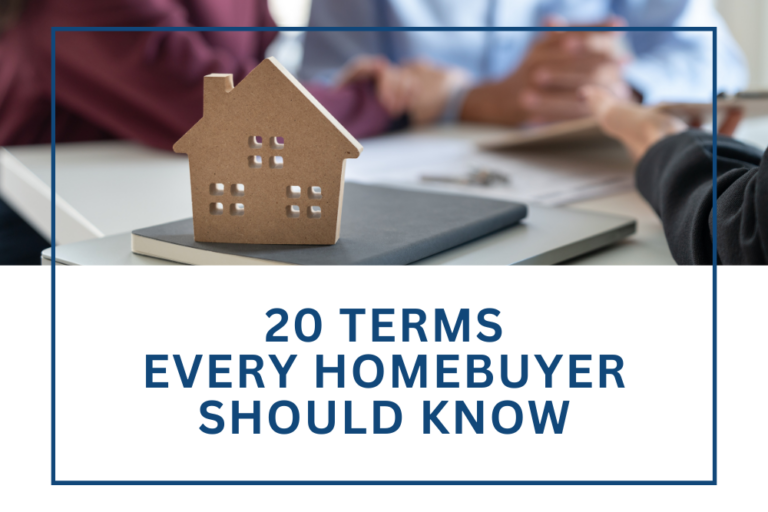Buying a home is one of the biggest financial decisions most people ever make—but let’s be honest, the mortgage process can feel like learning a new language. Terms like DTI, PMI, and escrow get thrown around, and it’s easy to feel overwhelmed before you’ve even started house hunting.
At Yes Lending, our goal is to make things clear, not complicated. We’re here to guide you through the process with real answers, real support, and real transparency. Whether you’re a first-time buyer or someone who just hasn’t gone through this process in a while, having a strong handle on the basic terminology can give you a major advantage.
To help, we’ve created this simple glossary of 20 essential mortgage terms—explained in everyday language so you can feel more confident at every stage of your journey.
1. Pre-Approval
A lender’s written commitment (based on verified income, credit, and assets) that you qualify for a mortgage up to a specific amount.
2. Pre-Qualification
An initial estimate of what you might qualify for based on self-reported information—less reliable than pre-approval.
3. Down Payment
The upfront amount you pay toward the purchase of your home—often 3% to 20% of the purchase price.
4. Hard Money Loans
A short-term, asset-based loan typically used by real estate investors. These loans are backed by the value of the property rather than the borrower’s creditworthiness and are often used for flips, renovations, or situations where traditional financing isn’t available. They usually come with higher interest rates and shorter repayment terms.
5. Loan Estimate (LE)
A standardized form that outlines the details, costs, and terms of your mortgage early in the process.
6. Closing Disclosure (CD)
A final version of your loan estimate given at least 3 days before closing—shows exact numbers and final costs.
7. Escrow
A neutral third party that holds funds (like your earnest money or property taxes) until all conditions are met.
8. Underwriting
The review process where your lender verifies your financial details and decides whether to approve your loan.
9. Interest Rate
The percentage charged annually on your mortgage—determines part of your monthly payment.
10. Annual Percentage Rate (APR)
A broader measure of your total loan cost, including the interest rate plus fees.
11. Debt-to-Income Ratio (DTI)
Your monthly debt payments divided by your gross income—used to determine how much home you can afford.
12. Private Mortgage Insurance (PMI)
Insurance required on many conventional loans with less than 20% down—protects the lender if you default.
13. Bridge Loan
A short-term loan that helps homeowners “bridge” the gap between buying a new home and selling their current one. It’s often used to access equity in the existing home before it’s sold, but usually comes with higher interest rates and stricter terms.
14. VA Loan
A loan backed by the U.S. Department of Veterans Affairs—available to qualified veterans and active service members, often with no down payment.
15. FHA Loan
A government-insured loan designed for lower-credit or first-time buyers—typically allows as little as 3.5% down.
16. Points (Discount Points)
An optional upfront fee you can pay to lower your interest rate—1 point equals 1% of your loan amount.
17. Appraisal
A professional estimate of your home’s market value—required by lenders to ensure the loan isn’t more than the home is worth.
18. Title Insurance
Protects you (and the lender) against legal claims or disputes over the property’s ownership.
19. Amortization
The gradual paydown of your loan over time, showing how each payment is split between interest and principal.
20. Closing Costs
The fees and expenses due at the end of a mortgage transaction—whether you’re buying, refinancing, or taking out a second loan. These typically range from 2-5% to 3-6% (depending on location) of the loan amount and may include lender fees, title services, appraisal, taxes, and more.
We know the mortgage process can seem overwhelming—but it doesn’t have to be. When you understand the key terms, you can make smarter, more confident decisions about your future.
At Yes Lending, we’re committed to giving you the tools, clarity, and guidance you need to move forward with confidence. If you’re ready to explore your options, have questions about your next step, or just want to talk through your unique situation, we’re here to help.
Reach out today and let’s take the guesswork out of home financing—together.



